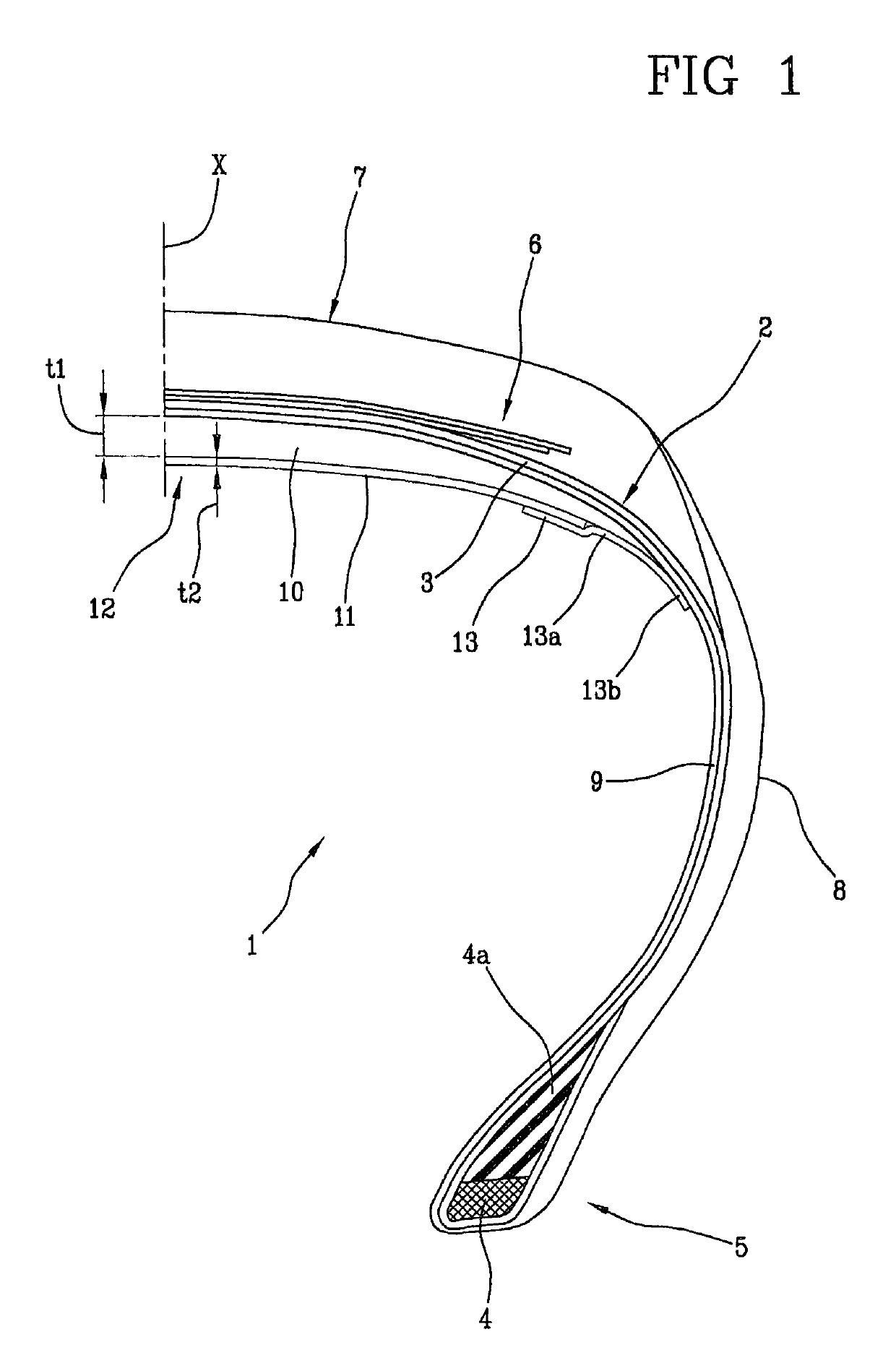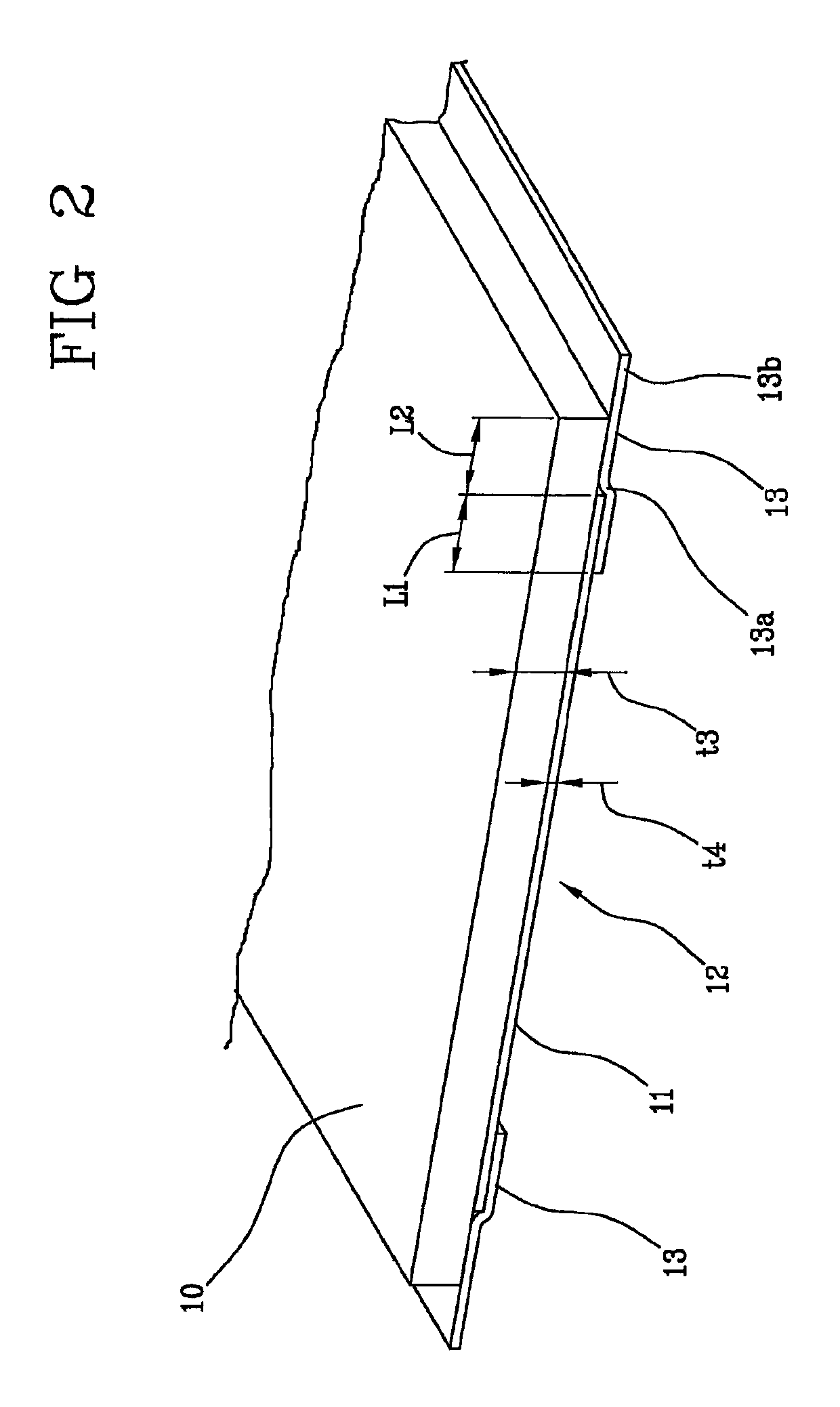Method of selectively controlling the self-sealing ability of a tyre and self-sealing tyre for vehicle wheels
a technology of vehicle wheels and self-sealing tyres, which is applied in the direction of tyre parts, transportation and packaging, other domestic articles, etc., can solve the problems of uncontrolled or unselective self-repair, false safety impression of vehicle drivers, and structural weakening of tyres, so as to avoid the effect of affecting the driving experience and avoid the damag
- Summary
- Abstract
- Description
- Claims
- Application Information
AI Technical Summary
Benefits of technology
Problems solved by technology
Method used
Image
Examples
example
[0120]A Pzero Red 235 / 45R17 Pirelli tyre was made self-sealing by a sealing assembly comprising a sealing composition together with a self-supporting thermoplastic film of nylon Filmon CXS18 of a non-oriented polyamide 6 having a 18 micron thickness. For characterising the thermoplastic film, a tensile stress test was carried out on two test pieces of Filmon CXS18 according to the ASTM D882 standard, under the following test conditions:[0121]test temperature 23° C.[0122]relative humidity 46%[0123]test speed=500 mm / min[0124]test-piece length 12.57 mm
[0125]The test results are reproduced in the following table 1.
[0126]
TABLE 1Ultimate tensile stressUltimate elongationSample(Mpa)(%)153.82172.48259.58192.45
[0127]A stress relaxation test was also carried out on a sample of Filmon CXS18 that, being measured, had the following sizes 200 mm×20 mm. The test piece was conditioned for 24 hours at 23° C. and 45% of relative humidity.
[0128]The test was carried out by a Zwic dynamometer model 1445...
PUM
| Property | Measurement | Unit |
|---|---|---|
| thickness | aaaaa | aaaaa |
| thickness | aaaaa | aaaaa |
| elongation at yield | aaaaa | aaaaa |
Abstract
Description
Claims
Application Information
 Login to View More
Login to View More - R&D
- Intellectual Property
- Life Sciences
- Materials
- Tech Scout
- Unparalleled Data Quality
- Higher Quality Content
- 60% Fewer Hallucinations
Browse by: Latest US Patents, China's latest patents, Technical Efficacy Thesaurus, Application Domain, Technology Topic, Popular Technical Reports.
© 2025 PatSnap. All rights reserved.Legal|Privacy policy|Modern Slavery Act Transparency Statement|Sitemap|About US| Contact US: help@patsnap.com


